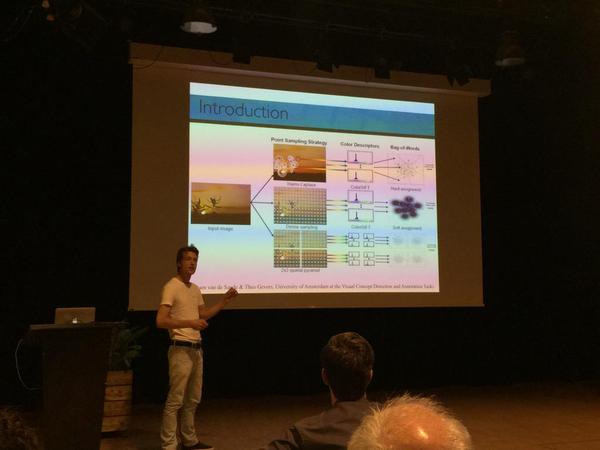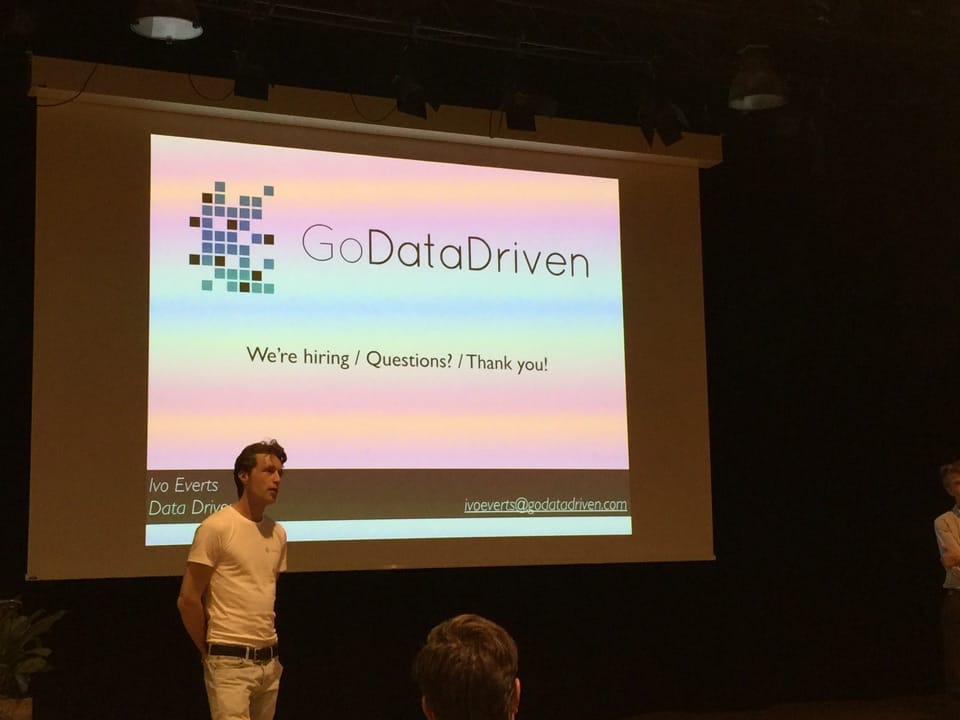 At this year’s BElgium-NEtherlands machine learning conference (benelearn 2015, Delft Netherlands), GoDataDriven contributed by sponsoring the event and providing content: our Ivo Everts presented some of his recent work on machine learning for object recognition in images. It was a very interesting day with a couple of good speakers, and a mixed crowd from science and industry. Some highlights:
At this year’s BElgium-NEtherlands machine learning conference (benelearn 2015, Delft Netherlands), GoDataDriven contributed by sponsoring the event and providing content: our Ivo Everts presented some of his recent work on machine learning for object recognition in images. It was a very interesting day with a couple of good speakers, and a mixed crowd from science and industry. Some highlights:
Parking demand optimization
During his time at Xerox (he will be joining Booking.com next month), Onno Zoeter investigated if the coverage of parking spots in urban areas can be optimized. Important in this respect is the observation that a substantial part of urban traffic congestion (and irritation) is caused by people searching for a parking spot. Based on sensory input from parking lots, a mobile application was developed that can inform drivers about vacant spots. But more importantly, there are patterns in that sensory data that can be turned into value: Zoeter used the data to understand the process of people searching for a parking spot and developed a method based on which the pricing is dynamically adjusted. This has resulted in decreased congestion and parking costs per individual, and an increase of revenues for the council! An awesome example of the ‘internet of things’ – check it out.
Deep neural network compression
Kilian Weinberger from Cornell university presented his work on machine learning under resource constraints. He observes that today’s best algorithms are the ones that benefit most from today’s large amounts of data and computational resources, but that it is still of our interest to be able to run those algorithms in more economic environments. For example, you might want to run a deep neural network on a mobile device for speech recognition, or you might simply not have the resources for setting up and maintaining a computing cluster. In those cases it is neccessary to compress the computational models as much as possible, while maintaining the performance that you would achieve without compression. Weinberger has achieved this for deep neural networks by limiting the amount of different values that the network parameters can take, which resulted in a 64x compression in memory without decreasing the network size against negligible performance loss. This kind of work will enable a more common use of the strongest models for pattern recognition. Double precision floating point numbers in a single bit!
Science meets industry
 The attendees of benelearn constituted a mixed crowd from science and industry. Companies such as Booking.com and Travelbird use machine learning to perform user profiling and make good automated suggestions and rankings of hotels and holidays on their website. Microsoft is offering services to help their clients managing and analyzing their data using statistical techniques on e.g. the Azure platform. Owlin automatically extracts meaningfull information using machine learning from news sources that are relevant in a risk or trading context. We also met people from Algoritmica, Rabobank and Amazon, and of course from the universities of Amsterdam, Delft, Leiden, Leuven, Ghent, etcetera. We are all connected through our interest in the current and next developments in machine learning, both in theory and in practice. And GoDataDriven is proud to be part of this!
The attendees of benelearn constituted a mixed crowd from science and industry. Companies such as Booking.com and Travelbird use machine learning to perform user profiling and make good automated suggestions and rankings of hotels and holidays on their website. Microsoft is offering services to help their clients managing and analyzing their data using statistical techniques on e.g. the Azure platform. Owlin automatically extracts meaningfull information using machine learning from news sources that are relevant in a risk or trading context. We also met people from Algoritmica, Rabobank and Amazon, and of course from the universities of Amsterdam, Delft, Leiden, Leuven, Ghent, etcetera. We are all connected through our interest in the current and next developments in machine learning, both in theory and in practice. And GoDataDriven is proud to be part of this!





